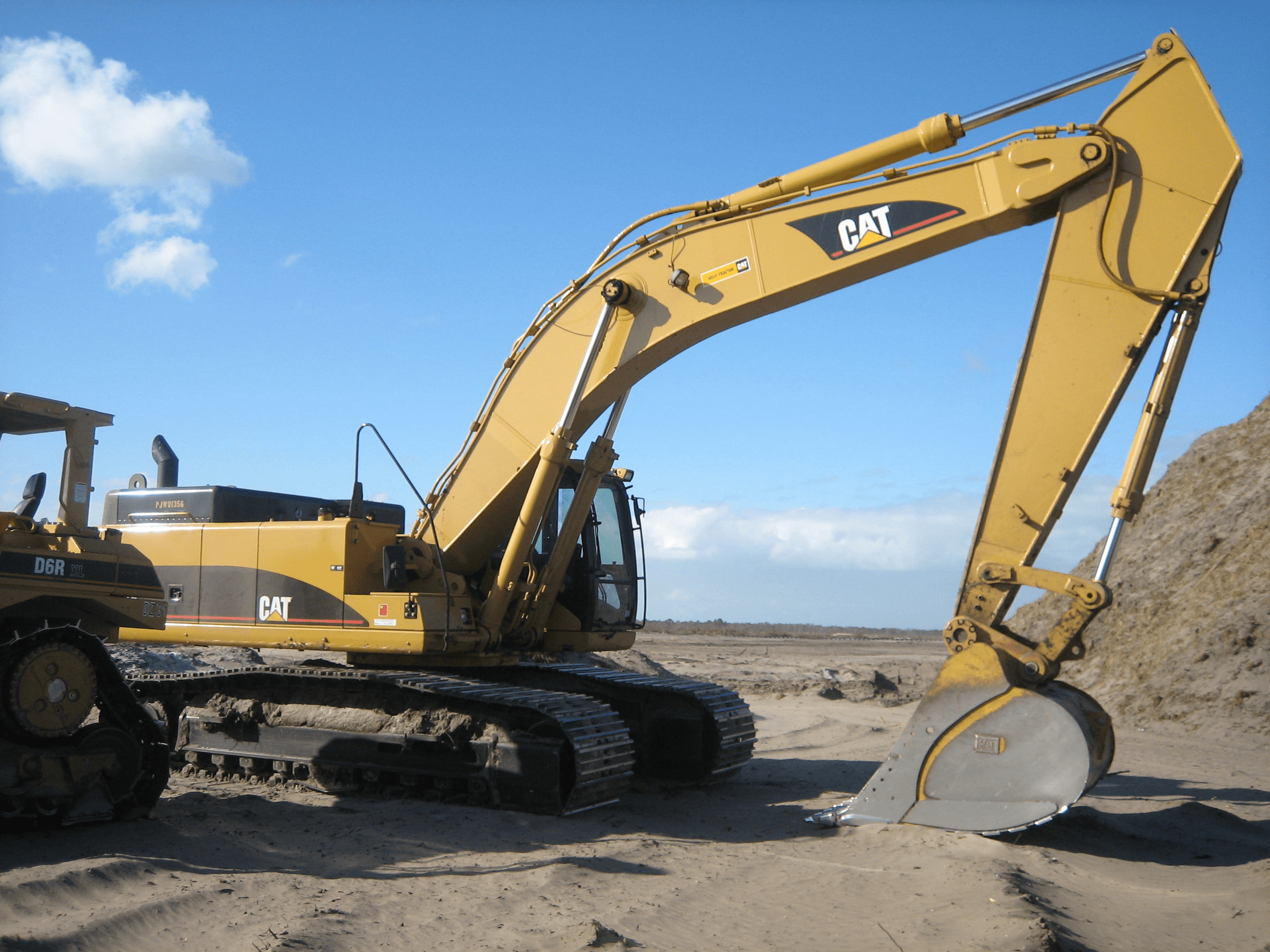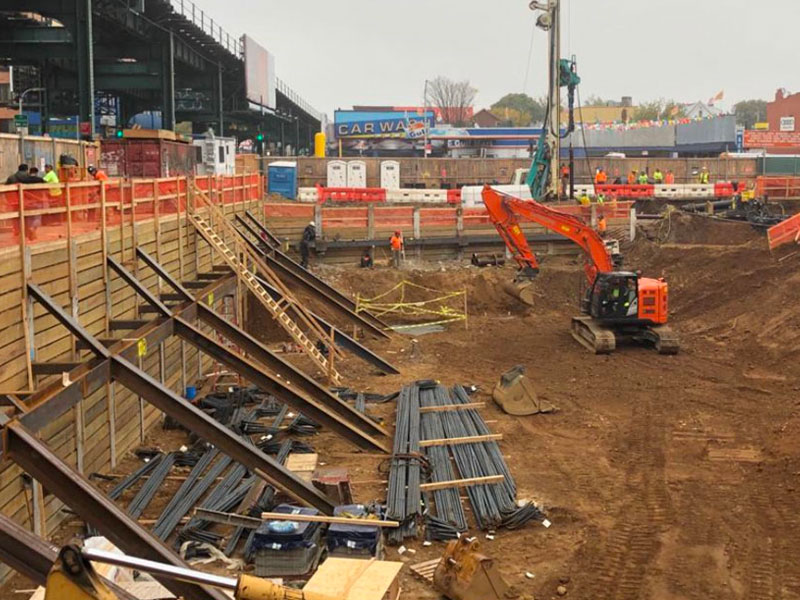Comprehensive Excavation Methods: Understanding the Basics for Success
In the world of construction and civil engineering, the relevance of effective excavation methods can not be overemphasized. The mindful planning, specific implementation, and careful attention to information called for in excavation projects demand a comprehensive approach that incorporates numerous fundamental aspects. From preliminary dirt analysis to the implementation of precaution and regular progression tracking, understanding these core elements is important for achieving success in any excavation venture. The real proficiency lies not merely in comprehending these fundamentals however in effortlessly incorporating them to navigate the intricacies of excavation jobs with skill.
Comprehending Excavation Job Planning

Effective excavation tasks are developed on the structure of thorough and precise planning. The preliminary phase of any type of excavation job is the preparation phase, where crucial choices are made that can considerably impact the outcome of the task. Throughout this stage, it is important to gather all appropriate details about the website, including topographical surveys, dirt structure, and any potential hazards that might exist. Recognizing the job timeline, spending plan, and range restraints is critical for creating a thorough excavation plan that ensures the task's success.
One trick aspect of excavation task preparation is the advancement of an in-depth timeline that lays out the sequence of tasks, target dates, and landmarks. This timeline functions as a roadmap for the job team, allowing them to track development and make required adjustments to make certain the project remains on timetable. In addition, a well-defined spending plan that makes up all costs, including tools rental, labor prices, and materials, is crucial for staying clear of cost overruns and hold-ups. By carefully considering all these elements during the drawing board, excavation jobs can be performed effectively and effectively, causing successful results.
Dirt Analysis and Site Assessment
Performing comprehensive soil evaluation and site analysis is a critical step in the preparation stage of any excavation task. Dirt analysis entails figuring out the structure, structure, and homes of the soil at the excavation site. This details is critical for understanding the dirt's bearing capability, moisture content, and possibility for erosion, which are crucial consider determining the excavation techniques and tools required for the task.
Website evaluation surpasses dirt analysis and incorporates a wider assessment of the total site problems. This analysis consists of identifying any type of prospective threats, such as underground energies, ecological problems, or unsteady terrain, that might influence the excavation process. By extensively assessing the website, project supervisors can develop efficient excavation approaches that prioritize safety, performance, and environmental protection.
Using sophisticated innovations like ground-penetrating radar, dirt tasting, and drone surveys can boost the precision and performance of dirt analysis and site analysis. Investing time and resources in these preliminary actions can ultimately conserve time and protect against expensive delays or issues throughout the excavation process.
Equipment Selection and Application
Efficient excavation projects rely heavily on tactical equipment choice and application to ensure optimal efficiency and efficiency. Choosing the best equipment for the work is important in making best use of performance and lessening downtime. Variables such as the type of dirt, depth of excavation, and task extent play a substantial function in determining the most appropriate tools for the job at hand.

In enhancement to picking the appropriate tools, proper usage is vital to job success. Operators needs to be educated to over here manage the devices securely and efficiently - septic ohio. Regular maintenance checks and prompt repair work aid protect against breakdowns and make sure regular performance throughout the project
Precaution and Rules Conformity
In the realm of excavation jobs, focusing on safety and security steps and compliance with policies is extremely important to guaranteeing a lawfully audio and protected functional environment. Precaution include a variety of practices, consisting of performing detailed site assessments, carrying out correct signage and barriers, and giving adequate safety and security training for all employees entailed in the excavation process. Adherence to laws, such as OSHA requirements in the USA, guarantees that the excavation project fulfills the necessary standards to safeguard employees, onlookers, and the surrounding atmosphere.

Surveillance Progress and Adjusting Approaches
Exactly how can project supervisors efficiently track the innovation of excavation jobs and adjust their strategies appropriately to optimize end results? Surveillance progress is vital for ensuring that excavation tasks remain on track and satisfy deadlines. Project supervisors can utilize various devices and methods to track development, such as day-to-day progression visit this site records, normal website examinations, and advanced surveillance innovations like drones and GPS tracking systems. By continually keeping track of the project's improvement, supervisors can determine any type of potential delays or concerns early and take positive measures to resolve them.

Verdict
In verdict, understanding the basics of extensive excavation methods is vital for the success of any job. By recognizing task planning, assessing dirt and site problems, choosing appropriate equipment, following safety regulations, and keeping an eye on progression, job supervisors can make sure a effective and smooth excavation procedure. Implementing these techniques will certainly lead to successful outcomes and minimize possible risks or troubles throughout the excavation project.
The first phase of any kind of excavation task is the preparation stage, where important choices are made that can dramatically impact the outcome of the project. Comprehending the task budget, scope, and timeline constraints is important for creating an extensive excavation plan that makes sure the job's success.
How can predict supervisors properly track the advancement of excavation jobs and adapt their approaches as necessary to optimize results? By carefully keeping track of progression and being prepared to adjust strategies, task managers can enhance the total success of excavation projects.
By recognizing project preparation, evaluating dirt and site conditions, choosing ideal equipment, complying with security laws, and keeping an eye on progression, task managers can make certain a smooth and efficient excavation procedure.